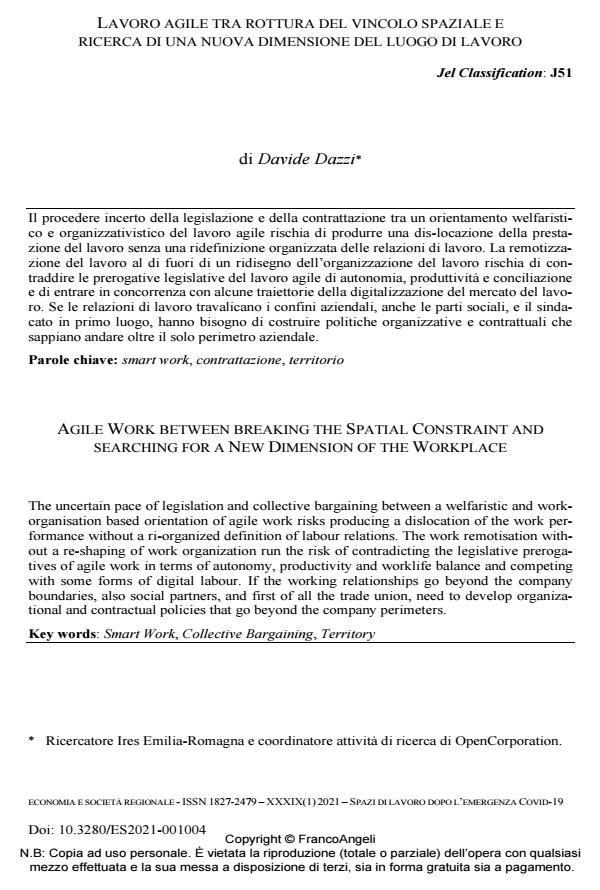Agile work between breaking the spatial constraint and searching for a new dimension of the workplace
Journal title ECONOMIA E SOCIETÀ REGIONALE
Author/s Davide Dazzi
Publishing Year 2021 Issue 2021/1
Language Italian Pages 11 P. 44-54 File size 256 KB
DOI 10.3280/ES2021-001004
DOI is like a bar code for intellectual property: to have more infomation
click here
Below, you can see the article first page
If you want to buy this article in PDF format, you can do it, following the instructions to buy download credits

FrancoAngeli is member of Publishers International Linking Association, Inc (PILA), a not-for-profit association which run the CrossRef service enabling links to and from online scholarly content.
The uncertain pace of legislation and collective bargaining between a welfaristic and work-organisation based orientation of agile work risks producing a dislocation of the work per-formance without a ri-organized definition of labour relations. The work remotisation without a re-shaping of work organization run the risk of contradicting the legislative prerogatives of agile work in terms of autonomy, productivity and worklife balance and competing with some forms of digital labour. If the working relationships go beyond the company boundaries, also social partners, and first of all the trade union, need to develop organizational and contractual policies that go beyond the company perimeters.
Keywords: Smart Work, Collective Bargaining, Territory
Jel codes: J51
- Comando e controllo nel lavoro agile: prime riflessioni Stefania Battistelli, Piera Campanella, in PRISMA Economia - Società - Lavoro 2/2022 pp.52
DOI: 10.3280/PRI2020-002004 - The variable geometry of bargaining: implementing unions' strategies on remote work in Italy Anne-Iris Romens, Valeria Piro, Francesco E. Iannuzzi, in STUDI ORGANIZZATIVI 1/2022 pp.129
DOI: 10.3280/SO2022-001006
Davide Dazzi, Lavoro agile tra rottura del vincolo spaziale e ricerca di una nuova dimensione del luogo di lavoro in "ECONOMIA E SOCIETÀ REGIONALE " 1/2021, pp 44-54, DOI: 10.3280/ES2021-001004